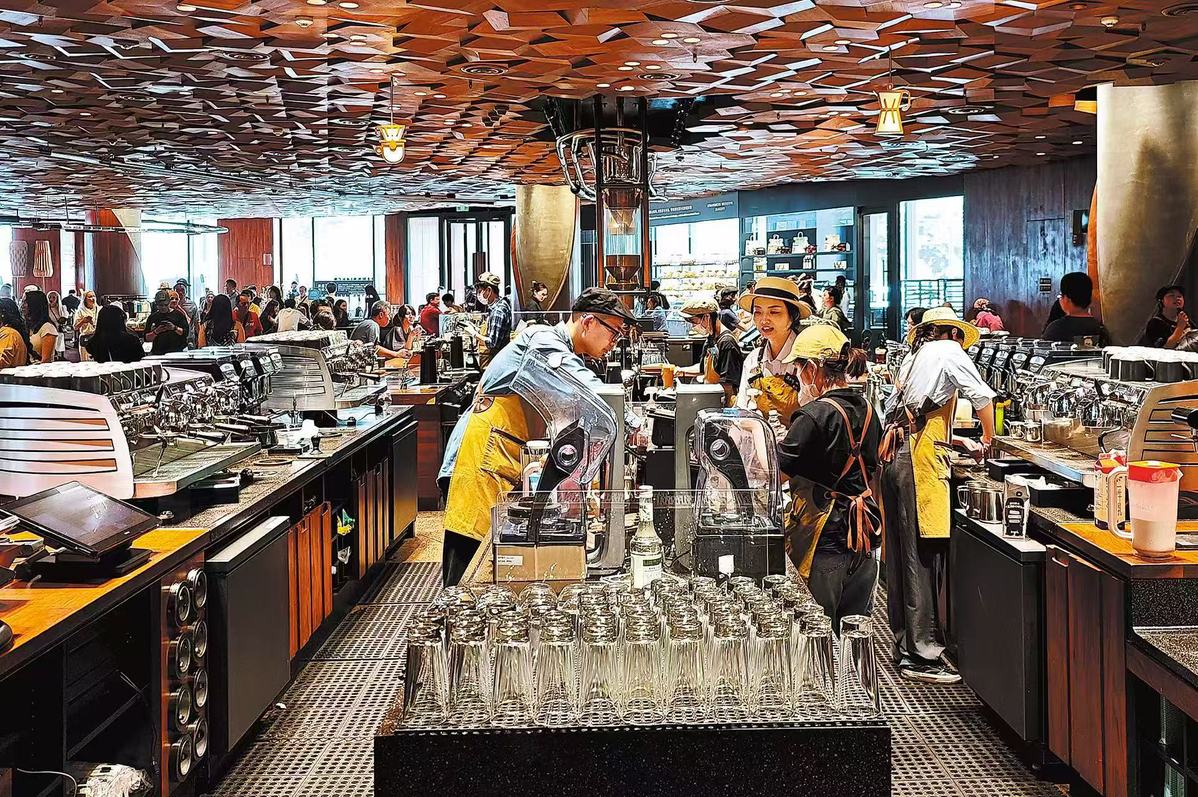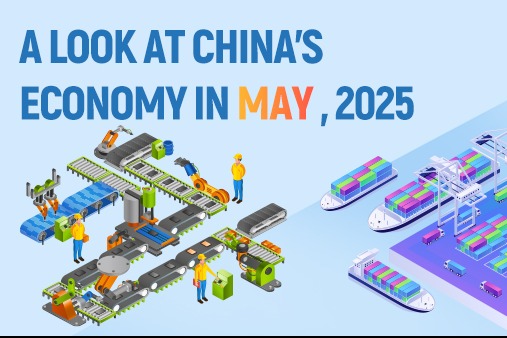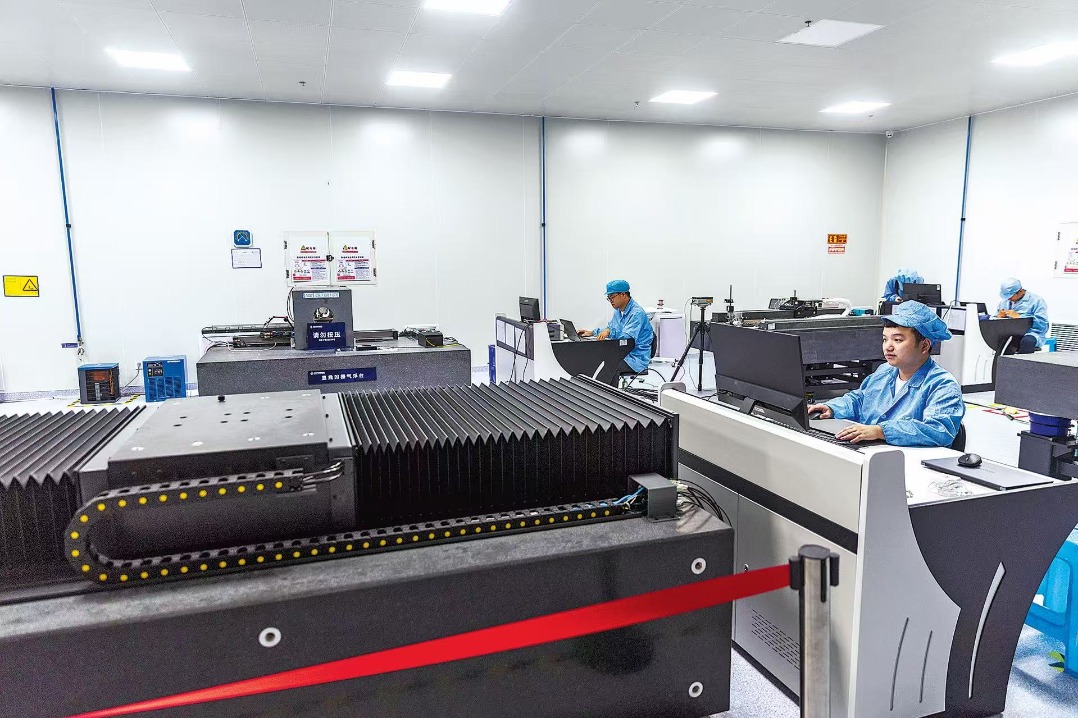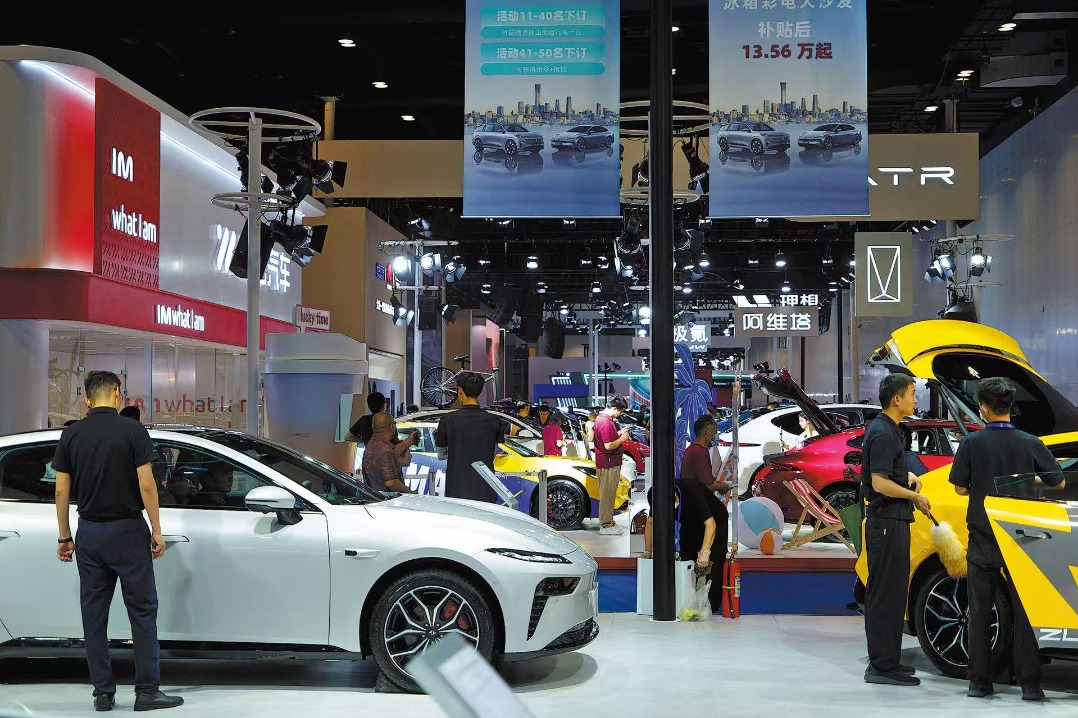Starbucks may seek out local partnership amid stiff beverage rivalries


Starbucks Corp is reportedly exploring strategic opportunities for its China operations, including potential partnerships or a partial stake sale, to reinvigorate growth in its second-largest market.
On Tuesday, the US coffee giant told Chinese media outlet Jiemian News that it remains "firmly committed" to the Chinese market and is "evaluating the best ways to capture future growth opportunities". The company said its focus is on revitalizing business and maintaining positive momentum.
The comments followed market reports on Monday that several high-profile investment firms — including Hillhouse Capital, Carlyle Group and CITIC Capital — recently participated in a reverse management road show for Starbucks China.
While the structure of a potential transaction has yet to be finalized, the unit is reportedly valued at between $5 billion and $6 billion. Starbucks currently has a market cap of $104.93 billion.
Starbucks China has in recent years lost its dominant position in the on-premises coffee market in China as local coffee rivals have emerged, while freshly made tea beverages are a rising force among younger Chinese consumers. According to Euromonitor International, Starbucks' brand share in the specialty coffee and tea shops category in China has dropped from its peak of 41 percent in 2017 to 14 percent in 2024, despite the market size of this category rising from $8.33 billion in 2019 to $21.8 billion in 2024.
In its fiscal second quarter, Starbucks' comparable store sales in China were flat, with a 4 percent gain in transaction volume offset by a 4 percent drop in average ticket size.
Despite that, Brian Niccol, Starbucks chairman and CEO, signaled confidence in the Chinese market in April, citing early signs of progress tied to new product strategies — including the launch of sugar-free beverages and more accessible price points.
The company sees great potential for business there in the years ahead and remains open to how they can achieve that growth, Niccol said in April. He added that Starbucks is actively exploring strategic partnerships.
Starbucks has already taken steps to sharpen its competitive edge. Earlier this month, the company reduced prices on dozens of non-coffee beverages — including Frappuccinos, iced shaken teas and tea lattes — by an average of 5 yuan ($0.70) for Grande sizes, with some drinks now priced lower at 23 yuan, and even lower during promotions.
The move is part of Starbucks' "all-day beverage" strategy aimed at positioning coffee as a morning choice and tea-based drinks as afternoon staples.
The company currently operates more than 7,700 stores across China. But it faces mounting pressure from domestic rivals such as Luckin Coffee, which has expanded aggressively and now runs over 24,000 outlets in the country. Cotti Coffee has now reached about 14,000 stores.
Meanwhile, freshly made tea brands are also crowding the beverage space.
The situation has drawn comparisons to the localized expansion model of McDonald's China, which has flourished since CITIC Group and CITIC Capital acquired a controlling stake in 2017.
Backed by CITIC's deep market reach and operational support, McDonald's China has grown to more than 6,820 stores as of 2024 — more than double its footprint in 2017. The company plans to open nearly 1,000 of its 2,200 new stores globally in China next year alone.
Independent food and beverage analyst Zhu Danpeng said CITIC could be an ideal partner for Starbucks. "If we consider overall business synergy and success rate of operations, selling to CITIC would be the best choice," Zhu said. "With McDonald's China already under its umbrella, CITIC has more resources, deeper experience and a stronger grasp of the Chinese consumer market. A Starbucks-CITIC tie-up would unlock clear strategic advantages."
wangzhuoqiong@chinadaily.com.cn




































